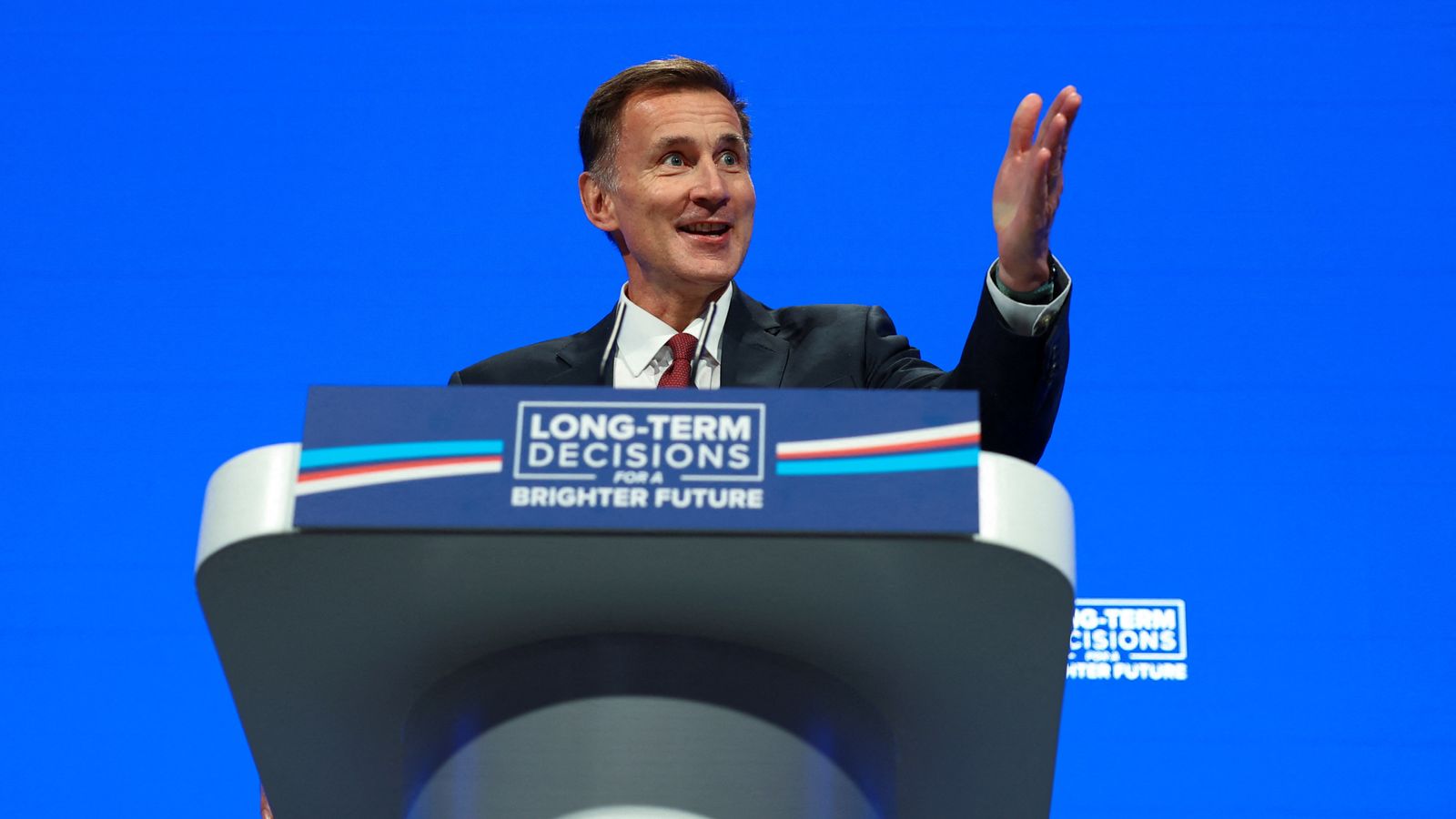Let’s get the actual economic policy out of the way first. It shouldn’t take long.
There were three main bits of news from the Chancellor’s speech today.
The first is that the national living wage is likely to be raised above £11 an hour. This is, to be frank, not exactly a government decision.
Latest: Reaction to ‘deeply embarrassing’ HS2 decision
The level will be recommended by the Low Pay Commission in the coming weeks and, on the basis of wage growth recently, they’re likely to suggest an hourly rate of around £11.10 or a bit above.
All the chancellor is saying today is that he’ll approve their recommendation – which is precisely what everyone was expecting.
The second bit of news is that the chancellor wants to introduce further sanctions on those who are on benefits and show little inclination to look for work. Again, such sanctions already exist, but the chancellor wants to “look at the way the sanctions regime works”.
Chancellor toughens rules on benefits as he announces Civil Service freeze
Liz Truss: ‘Make Britain grow again’ – ex-PM echoes Donald Trump as grassroots Tories welcome her to conference
Gillian Keegan announces phone ban in schools – despite most already having policy in place
The third new measure is a freeze on civil service hiring, akin to the one George Osborne brought in during the austerity years when he was chancellor.
This wasn’t pre-flagged but generated the most applause of the entire speech.
By now you probably get the idea. Once upon a time, Tory Party conference was an important moment for this country’s economic policy.
It was the forum where previous chancellors – most notably George Osborne – announced new measures that would change the direction of UK PLC.
Please use Chrome browser for a more accessible video player
Those days seem to be long over: in policy terms, day one of Conservative Party conference was, to borrow American jargon, a “nothingburger”.
Of course, the real story of this conference was what was happening offstage: the Liz Truss rally and the disclosure, leaked to Sky News shortly before the chancellor’s speech, that the prime minister has indeed cancelled the Birmingham to Manchester leg of HS2.
That brings us to the wider issue here.
The slogan for the conference is “Long Term Decisions for a Brighter Future”. The government’s problem is that the more it decides to reverse long-standing government policy, whether on HS2 or on net zero, the more capricious it looks.
For most businesses trying to decide whether to invest in this country, tax rates and subsidies are only a small part of the decision-making matrix. Far more important is a sense of stability – that government will stick to its long-term decisions.
Yet that’s precisely the opposite of the impression given by the Conservative Party here in Manchester.










